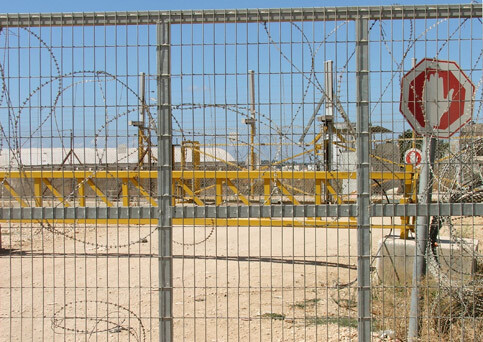International Crisis Group 5 October 2006

Movement restrictions in the West Bank city of Qalqiliya (Maureen Clare Murphy)
AMMAN/BEIRUT/JERUSALEM/BRUSSELS — Now is the time for a serious international push to launch an Arab-Israeli peace initiative. Catastrophic as the recent series of developments in the Middle East have been, they can give new impetus to the search for a comprehensive settlement.
The Arab-Israeli Conflict: To Reach a Lasting Peace, the latest report from the International Crisis Group, is a realistic analysis of all the obstacles to peace in the current climate. But it also charts a way forward that could succeed.
“The Lebanon war must serve as a wake-up call”, says Robert Malley, Crisis Group’s Middle East Program Director. “Surely everyone now realises that as long as the political roots of the Arab-Israeli conflict are not addressed, it will remain a bottomless source and pretext for repression, radicalisation and bloodletting, both in the region and beyond.”
Since the collapse of the peace process in late 2000, none of the regional parties has displayed the requisite capacity or willingness to reach an acceptable compromise, and the international community has shown more fecklessness than resolve. And yet, some promising ingredients exist: the possibility (despite the fraught relationship between Fatah and Hamas) of a Palestinian national unity government; Syria’s repeated appeal for a resumption of negotiations; increased eagerness on the part of Arab regimes for a renewed peace process; and Israel’s need to find an alternative way forward.
A new international conference might offer a jump-start, but a more realistic mechanism for early progress would involve the necessary negotiation initiatives coming from the Quartet (acting in concert with key regional countries), working under the general oversight of the Security Council. The following elements are key:
“Years of culpable neglect have crippled forces of moderation and pragmatism throughout the region and made the achievement of peace immeasurably more difficult”
Any new process must be comprehensive and inclusive, enabling all parties with a recognised stake in the outcome to participate;
From the outset, it must provide a clear political horizon as well as a credible means of getting there;
It should be realistic, and reflect existing conditions on the ground;
It should involve far greater engagement of Arab states and of Europe, who need to seize the initiative rather than await an increasingly improbable U.S. reawakening.
The goal, or political horizon, must be unambiguously stated as security and full recognition to the state of Israel within internationally recognised borders, an end to the occupation for the Palestinian people in an independent, sovereign state with East Jerusalem as its capital, recovery of lost land to Syria and a fully sovereign and secure Lebanese state.
“Years of culpable neglect have crippled forces of moderation and pragmatism throughout the region and made the achievement of peace immeasurably more difficult”, says Gareth Evans, President of Crisis Group. “The prospect of years more of waiting may make it impossible.”
To download the full report (PDF) click here.
Related Links


